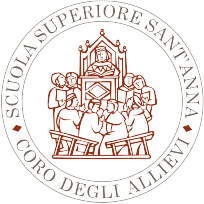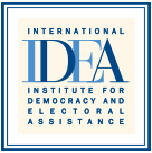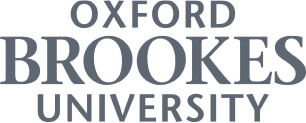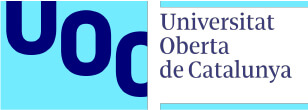UN Photo/Jean-Marc Ferr
About
The online Master in Conflict, Peace and Security is a unique opportunity designed to enhance the understanding of conflicts In all their dimensions and to explore innovative approaches to their management, resolution and transformation, with the help of leading academic experts and experienced practitioners. Built on the combined expertise of UNITAR and Universitat Oberta de Catalunya, the Master’s programme aims to equip participants with a broad analytical skillset, as well as with first-hand knowledge and insights coming directly from the field.
The Master’s programme and related Specializations are suitable both for professionals working in conflict-prone environments within the framework of international, regional, governmental or non-governmental organizations, and for graduate students, researchers or anyone with an initial knowledge of and interest in conflicts and the best ways to address them constructively. By choosing the Master in Conflict, Peace and Security, students gain access to a broad community of faculty, peers, and alumni spread all across the world. Becoming a part of this community is a valuable asset for life.
About
The online Master in Conflict, Peace and Security is a unique opportunity designed to enhance the understanding of conflicts In all their dimensions and to explore innovative approaches to their management, resolution and transformation, with the help of leading academic experts and experienced practitioners.
Built on the combined expertise of UNITAR and Universitat Oberta de Catalunya, the Master’s programme aims to equip participants with a broad analytical skillset, as well as with first-hand knowledge and insights coming directly from the field.
The Master’s programme and related Specializations are suitable both for professionals working in conflict-prone environments within the framework of international, regional, governmental or non-governmental organizations, and for graduate students, researchers or anyone with an initial knowledge of and interest in conflicts and the best ways to address them constructively.
By choosing the Master in Conflict, Peace and Security, students gain access to a broad community of faculty, peers and alumni spread all across the world. Becoming a part of this community is a valuable asset for life.
“Since early human history there has been a need for peace and security while managing and resolving conflicts that come from living in society. Nowadays more than ever, there is a need of highly skilled professionals in the peace, security and conflict fields.”
Dr. Daniel Rajmil, CPS Programme Director,
Universitat Oberta de Catalunya
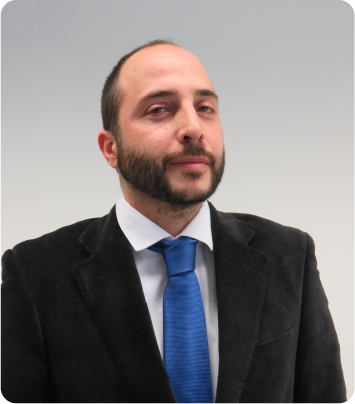
Curriculum
The Master in Conflict, Peace and Security is a certified degree awarded upon the completion of 60 ECTS. The Master is awarded according to the rules and regulations set by the Spanish education system. Giving its specificity, it does not give automatic access to Doctoral studies (PhD and similar). Validation of credits for access to such programmes can be requested from competent institutions.
Applications are open throughout the year and students are accepted on a rolling basis. However, deadlines exist to be considered for a specific semester.
Frequently Asked Questions
UNITAR has adopted a pricing system designed to provide access to its activities to individuals with limited resources while ensuring the financial viability of the programme. In this regard, UNITAR offers three categories of prices:
Master degree:
Full fee: EUR 7,408.00
The payment options at UOC are the following:
- One single payment by bank transfer in Euros
- One single payment by credit card in Euros.
Payment by debit card in instalments distributed as follows:
The the tuition fees for students enrolled in the master’s degree can be paid in up to 19 instalments distributed monthly plus one initial payment of 25% of the tuition fee.
UNITAR does not accredit courses taken by applicants and participants in other institutions besides the Open University of Catalonia. As a result, applicants will not be exempted from taking UNITAR or UOC courses on the basis that they have previously completed similar courses. Likewise, they may not receive a discount for the tuition fees.
The two degrees are different. The Postgraduate Certificate is shorter and cheaper than the Master’s degree and is open to applicants who do not have an undergraduate university degree. Courses in the Postgraduate Certificate are of the same quality and standard as those in the Master’s degree. The Postgraduate Certificate is not of the same level as the Master’s degree since it is shorter and no thesis has to be written. Both are university qualifications which are accredited.
The Master’s degree is based on the European Credit Transfer and Accumulation System (ECTS) which is recognised throughout Europe and the world. There is no difference between the credits obtained in this Master’s degree and those obtained through face-to-face studies in other European universities.
The Master’s degree is recognised by the United Nations, including for employment purposes.
The entire programme is web-based and all courses take place online. You are not required to travel, even for your graduation. All you need is a reliable internet connection.
The programme is entirely web-based and no travelling is involved. It is designed to maximize learning and requires the full participation of each member. Adult education is very specific in that it entails the learner to use the knowledge they already possess and build upon it through application, reflection, and feedback. The activities are interactive and require the learner to engage not only on the topic but with other participants and the facilitator. This programme does not allow the participant to sit back and be fed the knowledge. Instead, it pushes the learner to maximize their own resources. The Programme does not include any final exams. To ensure that the continuous assessment process has been followed, you must have completed and submitted all the required continuous assessment tests and exercises.
In general, courses require participants to submit activities on a weekly basis and you may organise your study time in any way you want to meet the deadlines. If you go on mission, extensions may be granted by the course facilitator on a case-by-case basis. You must request the extension beforehand.
Beyond UOC and UNITAR staff, we invite experienced practitioners from our partner institutions, universities and organisations. With guest trainers and lecturers from various continents, the Master’s programme creates a stimulating balance between the theoretical and the practical and ensures that students receive cutting-edge and relevant knowledge.
To receive the Master’s Degree in Conflict, Peace and Security, issued by the UOC in partnership with UNITAR, candidates must complete the following courses equivalent to 60 ECTS (1500 hours) in no more than two years:
UN.000 Understanding Conflict and Conflict Analysis
UN.001 Conflict Resolution
UN.002 Introduction to Peace Operations and Milestones in UN peacekeeping
UN.004 Human Security in Post-Conflict Interventions
UN.006 Gender Matters
B1.044 Media and Conflict
B1.042 Philosophy of Peace and Non-Violence
B1.048 Game Theory
B1.046 Economy, Environment and Migration
B1.055 Research Methods
B1.049 Intercultural/Ethnic Conflict and the Management of Diversity
B1.051 Corruption, Conflict and Security
B1.050 Prevention and Transformation of Conflict
B1.101 Mandate Evaluation/Leadership and Strategic Planning
B1.045 Crisis Management
B1.700 Master’s Final Project
Each application will be reviewed by the Selection Committee of UNITAR and UOC. To gain admission on the official Master’s course, candidates must have an official university degree. This notwithstanding, UNITAR and the UOC may admit candidates with pending degrees, as long as all necessary courses for said degrees were passed. The Selection Committee will verify prior to enrolment that the courses taken were the equivalent level of a university degree and that they allow admission to postgraduate courses in the country of issue of the qualification. Candidates must be proficient in English and have reliable access to the internet.
The degree is not only for United Nations peacekeepers and the target audience includes:
- Peace operation personnel;
- Military and police personnel;
- Civil servants and staff of international, regional and national organisations involved in peace and security;
- NGO representatives and humanitarian workers;
- Indigenous people’s representatives;
- Researchers and academics;
- Students;
- Any person with responsibilities and interest in solving conflicts.
- A completed application form;
- A cover letter/personal statement (approx. 400 words) explaining your current position and why the chosen degree would be relevant for your career. You must convince the Selection Committee that you have the relevant experience or intellectual capacities to complete the programme and that you have the potential or ability to work in the field of peace and security;
- An essay (approx. 400 words) on a subject related to inter-state or intra-state conflicts in which you display an intermediate level of knowledge on peace and security issues, sufficient proficiency in English and an academic writing style. All your sources and citations must be referenced and plagiarism may lead to the rejection of the application;
- Copies of your previous degrees;
- A Curriculum Vitae of maximum 8-10 pages;
- A copy of a current passport;
- A letter of reference.
Yes, your application will be reviewed and you may be pre-registered. However, you will only be registered on the programme once we have received all copies of your certificates and you have paid the tuition fees.
A Master’s degree is a valuable qualification that provides multiple benefits. Candidates who choose to pursue postgraduate studies in Conflict, Peace and Security may seek to:
- Acquire up-to-date and advanced knowledge on issues related to peace and conflict;
- Learn about cutting-edge methods and strategies to implement effective conflict prevention and conflict resolution programmes;
- Develop transferable skills of interest to employers and the UN system, thus facilitating their recruitment in international or national bodies, NGOS, consultancy firms, etc…
- Receive a degree from an accredited university to advance in their careers.
Graduating from the International Master’s degree in Conflict, Peace and Security will not automatically get you a job with the United Nations. However, it imparts knowledge and skills sought after by the United Nations and as such it will increase the quality of your application.
United Nations Institute for Training and Research (UNITAR)
Division for Peace
Avenue de la Paix 7 bis, CH 1202, 2 Geneva, Switzerland
E-mail: conflictology@unitar.org
Testimonial

Dr. Daniel Rajmil, CPS ProgrammeDirector,
Universitat Oberta de
Catalunya


